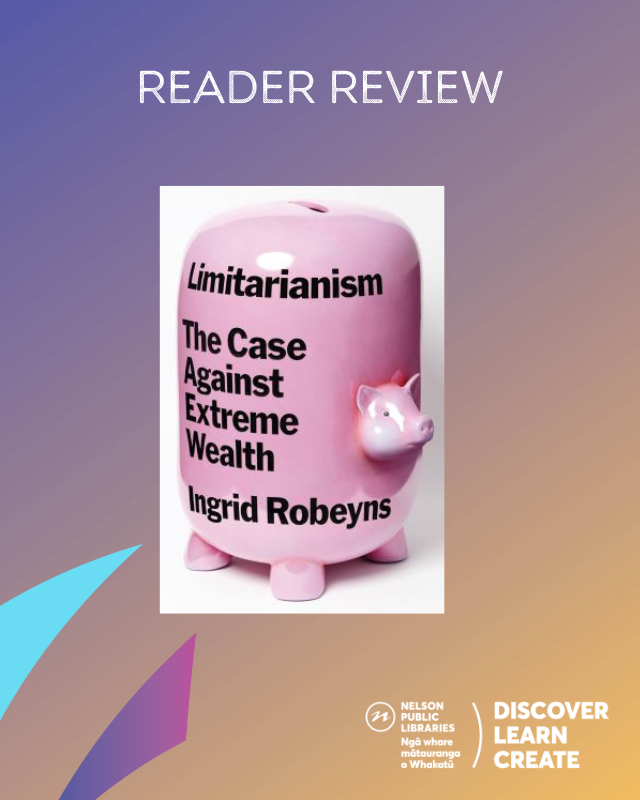Reader Review - Limitarianism The Case Against Extreme Wealth
Reading this book produced a great sense of Eureka! So much is noteworthy. Written by a Dutch Philosopher and Ethicist it is wonderfully easy to read. The arguments are clear and concise and there are 44 pages of references in case of any need to check what is written.
Ingrid Robeyns outlines how extremely wealthy many people are. In particular, the top 1% of the world's wealth. That wealth, for the "extremely wealthy" has increased over the last few years and far outstrips any increase that the world's poor, or indeed the wealthy have experienced. And this is during the era in which we have been taught that we should leave difficult problems to the private sector, which has lead to big sell-offs of state assets and the huge increases in 'supervision' of benefits for the poor and needy.
The origins of such wealth are examined, beginning with the slave trade and the German families who benefited from supplying Hitler's requirements during the Holocaust. A strong argument is made for increased taxation, in order to fund deep changes in society. A society that would offer high quality childcare to all, a free high quality education for all and the elimination of poverty. Funding this through taxing of wealth, is said to enable the wealthy to free themselves of the burdens that they endure. Further changes, via a properly funded State system, will also ensure quality health care for everyone, proper pensions, and adequate support for the disabled.
The author suggests a wealth tax, limits on wealth, and determining maximum incomes as well as minimum incomes. To dismiss her arguments as impossible is to miss their true strength. The best bit is that we are all encouraged to wake up to just how enormous inequality has become. She advocates that all of us begin to talk about wealth and the wealthy and to think about what sort of society we really want to live in. Will we continue as we are, encouraging greed, material consumption, passing huge profits to the wealthy and crumbs to the poor and needy when and where the wealthy philanthropists choose. Or will it be truly democratic, humane, supporting policies focussed on well being and nurturing genuine human needs.


